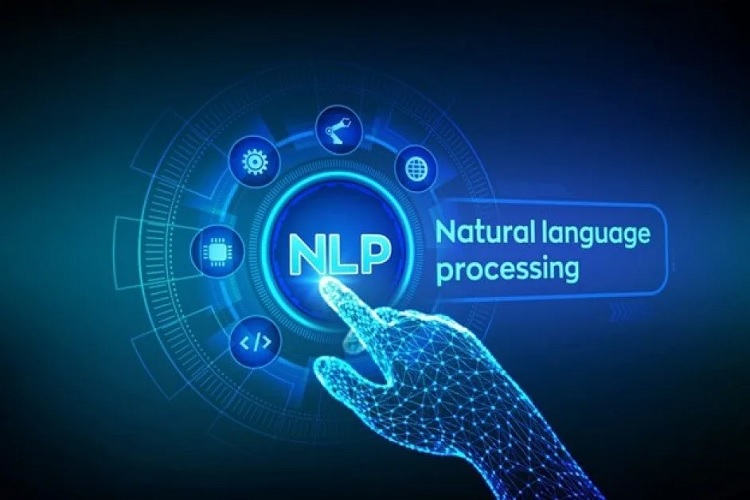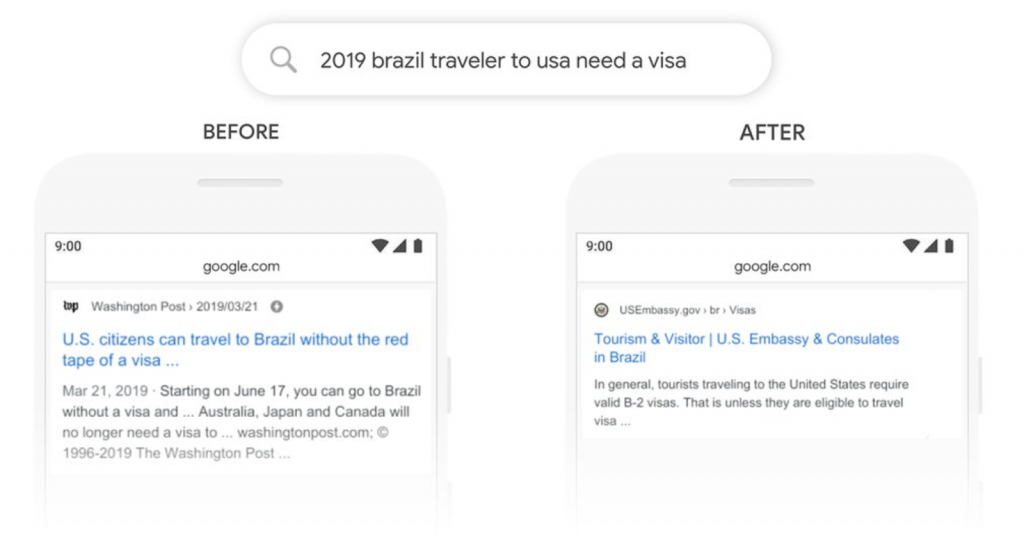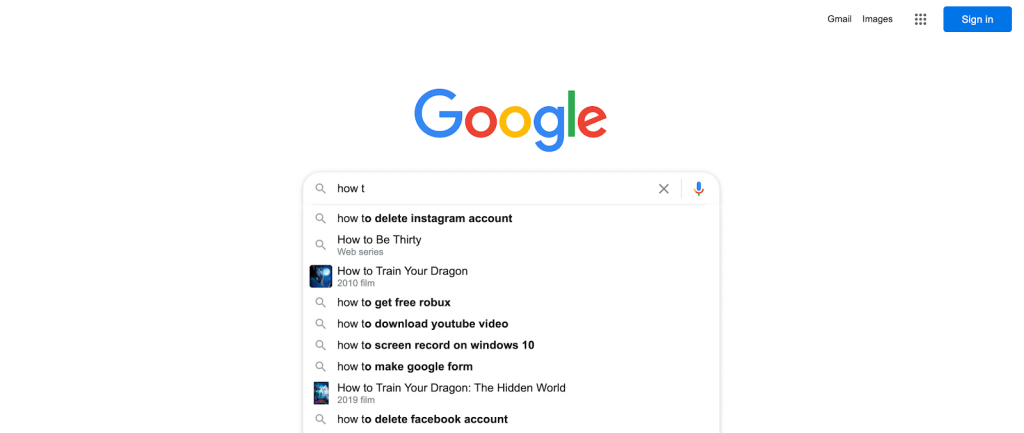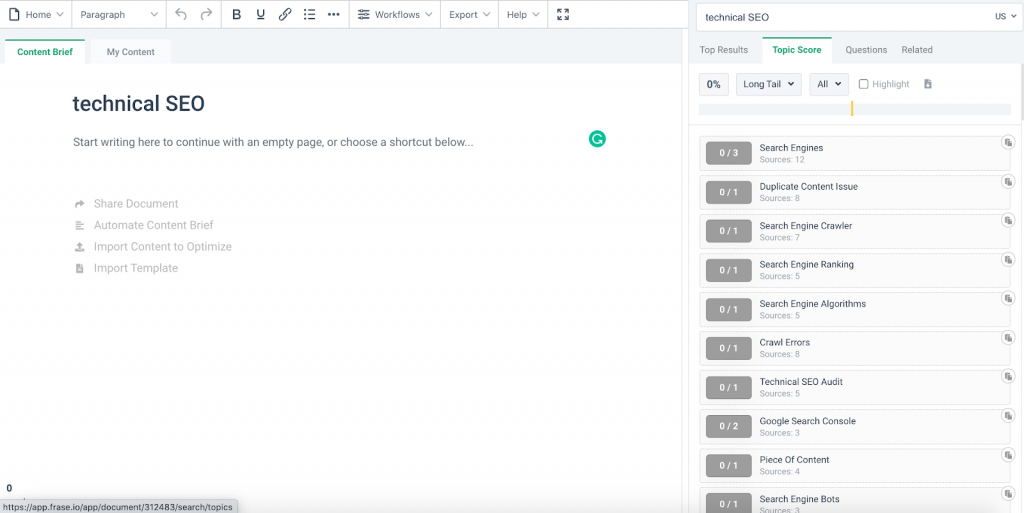Over the years, search algorithms have constantly evolved and become more intelligent. What worked for websites ten or fifteen years ago no longer works.
Table of Contents
Content marketing for SEO has also evolved. If you’ve observed how Google searches and SEO have changed, I can’t blame you for comparing it to a game of cops and robbers.
While the old iterations of Google’s search algorithm were easy to game even with substandard content, the emergence of natural language processing (NLP) and artificial intelligence (AI) has made it imperative for content marketers to produce content that’s meaningful, informative, and relevant to their audiences.
Digital marketing professionals constantly study the relationship between content quality and search rankings, then apply what they’ve learned to their content. You might have wondered what makes an article rank in today’s searches yourself.
But before we learn how digital marketers apply AI and NLP to their campaigns, we need to understand what both concepts mean and how they affect SEO.
What are artificial intelligence and natural language processing?
Artificial intelligence refers to computers or computer programs that are designed to learn new concepts and solve problems.
A computer programmed with AI takes massive amounts of data, analyzes it to come up with useful information, and develops the ability to predict or detect patterns based on its analysis.
On the other hand, natural language processing allows computers to break down human speech or language so it can be understood and manipulated by computers.
Apps and search engines use data to recognize specific words and language patterns and deliver more accurate and relevant information in response to human users’ queries.
NLP completes three main tasks: recognizing text, understanding the text, and generating text.
AI and NLP play a role in determining how user experience impacts SEO. Suppose a site offers useful information that’s easy to understand.
In that case, search algorithms prioritize that content over pages that offer similar content presented in a way that is not as understandable or valuable to a user.
The BERT and SMITH Updates
In 2019, Google launched the Bidirectional Encoder Representations from Transformers or BERT algorithm. This new algorithm allows computers to recognize and understand human language using NLP.
According to Google, the BERT algorithm can effectively discover word contexts and sequences in search strings and match these with results that are closer to the search of the user.
BERT also allows the Google search engine to generate featured snippets for any relevant search.
Google would argue that the quality of search results has improved dramatically since the update. Users get improved search results that match their search intentions.
SMITH is described in a Google Research paper published in April 2020 and updated in October 2020, however it doesn’t appear to be a part of the algorithm yet.
It can analyze words deeply to find the intended meaning instead of focusing on each word’s textual meaning.
Unlike BERT, which experiences a decline in the quality of indexing when it comes to long-form content, SMITH performs better with longer blocks of text.
SMITH wasn’t designed to replace BERT altogether. Instead, it builds on what BERT has achieved so far.
How do AI and NLP impact content marketing and SEO
The continuous integration of AI and NLP into search algorithms will continue to affect content marketing and SEO practices.
BERT and SMITH, in particular, will change how digital marketers structure and optimize their content. Let’s look at five ways AI and NLP continue to change content marketing and SEO.
1. Customized Search Results
Predictive intelligence is gaining greater importance within the context of SEO. Google’s predictive intelligence features, such as Google Trends, can offer better predictions based on popular keywords and search phrases.
You can use predictive intelligence to find the most searched keywords in your niche and discover how users tend to phrase their search strings.
Predictive intelligence also helps Google with content suggestions based on previous searches. You can see this in action when you search for a phrase on Google and the search engine attempts to complete your query.
For example, if someone searches for “Mark Zuckerberg” then “net worth” consecutively, Google’s algorithm will interpret it as a query about Mark Zuckerberg’s net worth.
Predictive intelligence is particularly useful for voice searches, where users aren’t very likely to use the same keywords more than twice in a row.
Predictive intelligence is used for other Google services. For example, there are a lot of Gmail extensions that utilize predictive analytics.
2. Term Frequency-Inverse Document Frequency
Google uses a type of textual analysis called Term Frequency-Inverse Document Frequency for page ranking.
With TF-IDF, Google AI can find the importance of a word or a phrase in a document or blog. TF-IDF allows Google to search deeper and find relevant content without relying solely on keywords.
With TF-IDF, a search result might take you straight to the most relevant point in an article.
One of the biggest innovations around AI and NLP for content creators is the rise of tools like Clearscope, Frase, and Surfer. These tools attempt to reverse engineer search rankings using TF-IDF and other ranking signals.
The tools do the following:
● Analyze the length of the content appearing on the first pages of the SERPs.
● Identify the most common relevant phrases used in those articles.
The tools then provide a list of keywords to include in the article, how often to include the phrases, suggested headers for the content, and more. Below is an example from Frase using the search term “technical SEO.”
You can see how this is a major advance on previous tools that asked you to identify one keyword and then suggested how many times to include these phrases in the article.
While this type of technology is in its infancy, it’s becoming a standard part of the SEO toolkit for professionals.
3. Rise of voice search
Voice search is becoming increasingly important in some sectors. As a content creator, you need to consider how voice search might impact your business.
SEO professionals now need to explore how voice search uses phrases and keywords and how they impact search engine results. Understanding the mechanism of voice search and its purpose can help you reach a wider audience.
It also allows you to offer informative content that can get a better page ranking and provide the information users want.
Voice search will likely impact app developers initially more than people who run websites. Just consider the types of voice commands you provide to a tool like Alexa.
They are often based on certain actions. For example, you might ask Alexa to turn a light on or off or request a specific song.
4. Sentiment Analysis
Analyzing the sentiment behind any service or brand can help in making content marketing more meaningful and effective. The analysis helps marketers discover consumer opinions and come up with content that responds to them.
Using AI can help you to understand the emotions that lie hidden in user-generated content and product comments. This process consists of the following steps:
Discover where consumers share their opinion about your brand, including social media platforms, review sites, or ecommerce platforms.
With AI and NLP, you can collect data from these platforms to understand what the consumers want and how they think about your brand or products. This allows you to market content in better ways to attract your targeted audience.
You may also use AI and NLP to find out audience sentiment and tone by identifying language and sentence structures that serve as emotional markers.
It should be able to tell between a customer who was genuinely happy with their purchase and one who isn’t.
With sentiment analysis, you make your consumers and target audience a part of your brand marketing and gather valuable data from them.
5. User Intent
Search algorithms are also starting to incorporate user intent into the way they rank content. NLP uses keywords to get more information about the user intent, whether it’s informational, navigational, or transactional.
If a search is used to find information, the user intent is informational. If a user searches with a keyword because they want to go to a specific site, it becomes navigational.
Transactional search intent is more common during online shopping, where a user uses keywords to find their desired item online.
Understanding user intent allows you to find the right keywords and see how people use keywords. This can help you find the best possible way to optimize content so that it reaches its target audience.
Summing Up
Google’s search algorithm is constantly evolving. With the introduction of the BERT update and the research paper around SMITH, Google is making the statement that AI and NLP will be key components of its algorithm, especially since its users are demanding search results that mimic human responses to questions.
However, AI and NLP are not just confined to searches made through the Google platform. Digital marketers need to account for the presence of both technologies when they create content.
For instance, it will no longer be enough to create good text-based content if a business wants to rank high in Google searches.
How Google will use AI and NLP one year or five years from now is still a mystery. But one thing’s certain: Google and other search engines will need to keep in step with the latest AI and NLP technologies to continue generating search results that users will find helpful and actionable.




